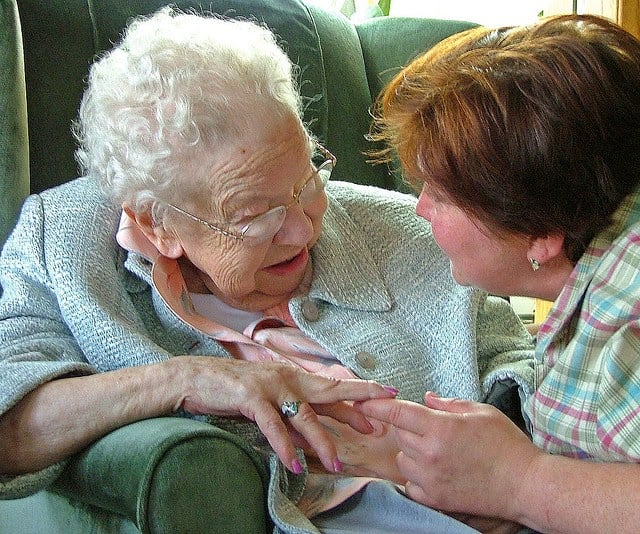Confabulation is defined as the spontaneous production of false memories: either memories of events that never occurred or memories of actual events which are displaced in space or time. These false memories can range from elaborate and bizarre, such as a memory of being captain on an alien spaceship, to something as subtle and mundane as recalling having eggs for breakfast when it was actually cereal and toast. Most known cases of confabulation are symptomatic of brain damage or dementias, such as an aneurysm, Alzheimer's disease, or Wernicke–Korsakoff syndrome.

Confabulations aren’t intentional; the person with dementia genuinely believes the false memory to be true. A confabulation isn’t exactly the same thing as a delusion – another phenomenon often present in patients with Alzheimer’s. A person with delusions often thinks that someone steals from them, that there are intruders in the house, or that home isn’t really home. A person with dementia who confabulates might form a “memory” for an event that didn’t occur. For example, the person might rearrange the furniture, forget that it happened, and make up a memory of a burglar moving everything to better explain or make sense of the situation. A person with delusions, on the other hand, might become convinced that a person robs them repeatedly, even if nothing is missing.
For caregivers, this can be another challenging behavior that must be handled with sensitivity and respect.
• Be aware that not everything said might be true, and that untruths probably aren’t intentional.
• Accept false ideas about current reality as much as possible; trying to prove a point or argue with your client or loved one will likely only result in upsetting both of you.
There’s no perfect approach that works with everyone, but the validation method may be used to meet the needs and address the feelings underneath the confabulation. After the person’s feelings have been validated, it’s often a good time to distract and move into a different conversation or initiate an activity that the person enjoys.
Amanda is a dynamic marketing professional with two decades of experience working in advertising, healthcare marketing, and corporate communications. Her experience includes market research, strategy development, program execution, event planning, and authorship of educational & promotional content. From her early days in the media department of a small advertising agency to her current role directing her organization’s marketing initiatives, Amanda has developed broad-ranging expertise in integrated marketing communications. Amanda earned her bachelor's degree in advertising from San Jose State University and spent part of her college career studying abroad at Oriel College, Oxford University, in England.